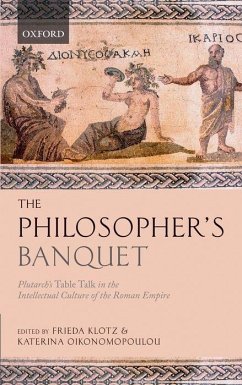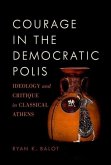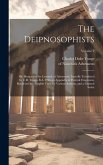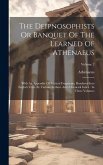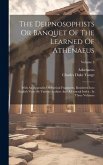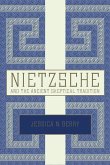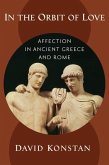The Philosopher's Banquet is the first sustained study of Plutarch's Table Talk, a Greek prose text which is a combination of philosophical dialogue (in the style of Plato's Symposium) and miscellany. The form of Table Talk was imitated by several later Greek and Roman imperial authors (such as Aulus Gellius, Athenaeus, and Macrobius), making it a vital part of the early Roman Empire's literary and cultural history. Similarly, the great variety of its contents links it with a broader imperial cultural trend, that of systematizing knowledge, which features increasingly prominently as a subject of scholarly study in both classics and the history of science. The contributors to The Philosopher's Banquet offer a range of methodologically innovative and sophisticated readings of Table Talk's literary form, themes, cultural background, and influence.
A collection of essays on Plutarch's Table Talk, an influential Greek prose text which is a combination of philosophical dialogue (in the style of Plato's Symposium) and miscellany. The contributors offer a range of methodologically innovative and sophisticated readings of the work's literary form, themes, and cultural background.
Hinweis: Dieser Artikel kann nur an eine deutsche Lieferadresse ausgeliefert werden.
A collection of essays on Plutarch's Table Talk, an influential Greek prose text which is a combination of philosophical dialogue (in the style of Plato's Symposium) and miscellany. The contributors offer a range of methodologically innovative and sophisticated readings of the work's literary form, themes, and cultural background.
Hinweis: Dieser Artikel kann nur an eine deutsche Lieferadresse ausgeliefert werden.

